Artificial intelligence (AI) is becoming a real and prevalent part of our everyday lives, especially for many of us in the accounting industry. AI has immense potential to replace manual tasks and, in so doing, free humans up to engage in innovation and creativity.
The idea that “the robots are coming for our jobs” is one disassociated from the reality of these technologies. That said, it’s a fact that accounting is changing.
The salient question is how AI is changing accounting, how AI innovation can change accounting jobs, and what accountants need to do to thrive during this digital revolution.
Spoiler alert: specialties will increase in value, and people who have the Certified Management Accountant certification are poised to lead the way.
In this article:
- What is AI in Accounting?
- Accounting AI is Creating Jobs
- AI Accounting Software
- The Impact of Artificial Intelligence on Accounting
- How Will ChatGPT Impact Accounting?
- How to Prepare for AI in Accounting as a CMA
- Embrace the Future of Accounting
Originally published in 2021, this article was updated and republished on October 05, 2023.
Want to watch instead of read? Check out the video from my YouTube channel:
AI in accounting is primarily about data and automation. AI-fueled technologies and applications like machine learning can drive new and improved practices around data analytics for accounting.
As much of bookkeeping, finance, and accounting are supported by technology, data becomes sharper… and more vast. Quickly accessing and making sense of it is a key advantage that AI unlocks.
In addition to data wrangling, AI can improve audit and financial processes. Using tech-based tools that organize information can save tons of time, and mitigate the risk of human error in these important processes.
Accounting AI is Creating Jobs
The World Economic Forum (WEF) has issued numerous reports forecasting how AI will impact jobs worldwide. In fact, their analysts predict that automation will result in an increase of 58 million jobs, two-thirds of which will be highly skilled.
They compare the current climate of change to similar times in the past. For example, in the early days of bookkeeping software, accounting jobs changed drastically. Intuit, launched in 1983, and Microsoft Excel, launched in 1985, did not, in fact, represent the demise of human bookkeepers, as many feared.
Instead, the field grew 75% over the course of a decade.
The net result of new technology in accounting and bookkeeping has been that accounts and tellers performed higher-skilled work than before. With AI and automation, this will continue to be true.
Benefits of AI for Accounting
The most common use for AI in accounting is to take care of repetitive tasks. For example, AI systems can capably, and with minimal error, complete tasks that include the following:
- Inputting and matching data
- Receipt reconciliation
- Creating and sending invoices
- Expense reports
- Tracking price changes
- Account reconciliation
- Sorting transactions
- Data recording and reporting
AI is built on algorithms, which improve over time as they are fed more data. In addition to continuous improvement, AI isn’t susceptible to human error and has around-the-clock capacity to work.
Three of the primary benefits experts see AI providing to accountants are:
- Invisible accounting: A behind-the-scenes function that frees up human accountants to engage more with strategic decision-making
- Continuous auditing: Auditing without the need for breaks and with no gaps in reason or precision
- Active insight: Accounting managers and leaders can get real-time visibility into their finances.
Of course, CMAs, CPAs, CFOs/vCFOs, and other credentialed accounting professionals already aim for roles where they make strategic decisions. Bookkeepers may represent a group that feels more at risk for an AI takeover.
AI Bookkeeping
AI is best at replacing manual tasks and alleviating the burden of repetition. However, much of bookkeeping exists in that realm.
So, will AI replace bookkeepers?
In some ways, the jobs performed by the average bookkeeper in a business or firm today can be replaced by AI. That does not mean bookkeepers are replaceable, just that their jobs may change. Entry creation, approval flow, and even auditing and tax services can be done, in part, by “bookkeepers,” or AI software for bookkeeping tasks.
An example is Zeni, a start-up that raised $13.5 million to automate bookkeeping using AI. They term their AI-powered solution a “financial concierge” and aim to serve start-ups or other business models with lean resources. This can present a cost-saving measure, reducing the number of bookkeeper hours a company has to pay for. While this may look like a precise example of how AI can replace bookkeepers, that is hardly the end of the story.
Virtual accounting services, including AI bookkeeping, represent not just a threat but an opportunity. In fact, most modern finance firms and accounting firms already use some form of AI accounting software.
AI Accounting Software
Accounting and bookkeeping platforms like Quickbooks, Oracle, FreshBooks, Zoho Books, and many others are used daily in businesses of every size. Almost all of these have some element of AI.
Accounting software has made accounting jobs immeasurably easier, enabling people to think critically, gain the full picture of a company’s finances, and work across verticals to achieve results.
AI takes data management and processing that would consume the time of many people and presents it in a way that can be used, sometimes right away. AI assistants and platforms can create a huge competitive advantage for firms, and firms of the future have already bought in.
Accountants of the future should also buy into the technology, learning how to adapt and leverage the opportunities it provides.
Here’s an overview of how each of these popular accounting software companies uses some form of AI to advance operations.
Quickbooks
Quickbooks uses AI to automate a lot of back-office tasks, including cash flow forecasting, smart match reconciliations, and payroll.
Oracle
Oracle is a cloud-based platform already, and the AI is joined by machine learning (ML) for elite enterprise resource and financial planning.
FreshBooks
FreshBooks is a cloud-based system that uses AI for accounts payable automation and a variety of automation around other business processes.
Zoho Books
Zoho Books is also a tech-first tool that covers the gamut of banking, inventory management, invoice management, billing, and more.
While AI accounting software may address some of the relevant tasks in bookkeeping, it’s fair to say that AI is having a broad impact in the industry as a whole.
The Impact of Artificial Intelligence on Accounting
In 2018, researchers assessed the growing impact of AI applications on the development of the accounting industry. They did acknowledge that AI has the power to subvert traditional development models and usher in an age of innovation for the accounting industry.
Since 2016, top four firm Deloitte announced that it would introduce AI into taxation, accounting, and auditing. In fact, Deloitte, KPMG, EY, and PwC have all been involved in AI initiatives since about that time.
Renowned ML and AI experts have continued to join the movement toward transforming finance and tech with technology. In this particular paper, researchers make the following conclusion:
“The application of artificial intelligence can solve the pain points of inefficiency and low added value in the accounting field, making the accountants turn to more creative work and bring greater value to the company.”
A 2020 Study on the Transformation of Accounting Based on New Technologies identified new accounting technologies that included AI, big data, cloud, and blockchain. It analyzed how these technologies were used in regular accounting practices, and considered how tech transformation is accelerating.
Researchers found that AI, Robotic Process Automation (RPA), and Machine Learning (ML) used in tandem generate more relevant information that helps business leaders make better decisions.
Every sector, from established accounting firms to innovative fintech companies, is finding opportunities in technology. Far from replacing all accounting jobs or presenting major threats to the industry, AI has the power to transform accounting for the better.
Will AI Replace Accountants?
In short, no. The accountant’s role will evolve as AI becomes more integrated into our workdays. AI can automate certain accounting tasks, making accountants more efficient and giving them time to focus more on analysis, advisory, and strategic decision-making.
AI is already enhancing the accounting profession, but it won’t be able to replicate the aspects of the job that need human judgment, ethical consideration, and client interaction. Accountants who embrace and adapt to AI will remain valuable to employers.
Future Accounting Jobs
Future accounting jobs will require professionals to understand the basics of coding and programming. Accounting jobs in the near future may look more like those of data scientists and data engineers.
Here are six steps to help prepare and future-proof your accounting career.
- Embrace New Technologies: Familiarize yourselfwith AI and machine learning technologies. Explore courses, webinars, and seminars explaining these concepts in the context of accounting and finance.
- Data Literacy: Understand how to work with data, including extracting, manipulating, and interpreting to generate actionable insights.
- Tools Proficiency: Master accounting software and AI-based tools. Don’t simply learn how to use them, understand the logic behind them.
- Continuous Learning: Technology evolves quickly, and staying updated on the latest AI is no longer optional.
- Communication Skills: Being a whiz at data isn’t enough. Practice turning complex data into easily digestible insights.
- Obtain Professional Certifications: The fastest way to upskill is to earn hyper-specific designations like the CMA.
How Will ChatGPT Impact Accounting?
ChatGPT (Generative Pre-trained Transformer) is the latest AI innovation that has the whole world talking – and for good reason. ChatGPT has the potential to completely change the way accountants work. Let’s explore how.
But what is ChatGPT? And how does it work?
ChatGPT can synthesize millions of pieces of data and information in order to provide accurate, comprehensive, and legible answers to sophisticated questions. This isn’t your average Alexa or Siri AI robot—ChatGPT can formulate long-form answers for a wide range of complex questions.
For accountants, this means a lot of different things.
Most prominently, it could change the way you study and work. ChatGPT can provide you with quick answers to your questions and automate a lot of your repetitive daily tasks at work.
On one hand, this could save you time reading through unnecessary material. On the other hand, it could cause you to have significant gaps in your knowledge, or create a reliance on AI to perform your job.
It is also very likely that these changes will transform your processes and habits at work. ChatGPT can provide you with helpful tips and formula structures which could help you streamline processes and serve more clients.
The Future of Accounting With ChatGPT
The future of accounting with ChatGPT is exciting but uncertain.
Soon, it could be used in the office to answer complex financial questions. This could allow human team members to focus on high-level strategy. It could also become a valuable tool for everyday people doing their taxes and financial planning.
AI technology is rapidly evolving. As an accounting professional, it’s your responsibility to stay on top of trends and to understand how new technological innovations like ChatGPT could impact your career.
How to Prepare for AI in Accounting as a CMA
Accounting firms and accounting departments are having a myriad of reactions to AI and similar advances in tech. My overarching advice is that you accept the inevitability of some major changes in our industry over the next decade.
The best way to prepare for AI and accounting automation is to be prepared.
From continuing education to your own self-education, get in the loop. By being an early adopter of any new technology, you could make yourself irreplaceable in your current position, and hugely desirable for a better one.
As business leaders, Certified Management Accountants (CMAs) are uniquely equipped to think outside of the box.
In a digital-first age, CMAs are in high demand to consider the business ramifications of technology – from AI to cryptocurrency accounting – and implement new strategies that will accelerate progress.
While AI-powered tools could impact the day-to-day, it’s these big-picture moments where CMAs really have an opportunity to shine by driving meaningful change in an organization or firm.
Embrace the Future of Accounting
In 2019, Sage research ran a large-scale survey of people in the accounting industry. 58% of respondents felt that AI would help their firms improve in the future. Intelligent technology has the ability to max out efficiency and create unparalleled insights. This is shaping the world of accounting every day, and the role of accountants stands to change.
For accountants who wish to lead the way into this bright, AI-supported future, there is no better option than to develop an array of skills beyond just accounting. This is part of the reason that the Certified Management Accountant delineation has grown so much in the past years, and continues to be a powerful way to differentiate from the pack.
Becoming a CMA is an opportunity for accounting professionals to embrace change and sit at the head of the ship, so to speak, as it charts new waters.
Do you have specific questions about AI transformation in accounting, or how the industry is changing? It is something that is on most of our minds.
Drop a question below, and myself and our CEA community can lean in. We’re all here to do great work, and understanding the role AI will play in our field is crucial.
After all, robots may not be coming for our jobs, but automation may help us do them better.
Hi, I’m Nathan Liao (aka the CMA Coach)! For the last 10 years, over 82,000 accounting and finance pros came knocking at my door seeking guidance and help. If you’re also aiming to conquer the CMA exam on your very first try—without wasting away time or money—you’ve found your ultimate guide. Dive in deeper to discover more about me and the dedicated team that powers CMA Exam Academy. Click here, and let’s embark on this journey together!

Hi, I’m Nathan Liao (aka the CMA Coach)! For the last 10 years, over 82,000 accounting and finance pros came knocking at my door seeking guidance and help. If you’re also aiming to conquer the CMA exam on your very first try—without wasting away time or money—you’ve found your ultimate guide. Dive in deeper to discover more about me and the dedicated team that powers CMA Exam Academy. Click here and let’s embark on this journey together!

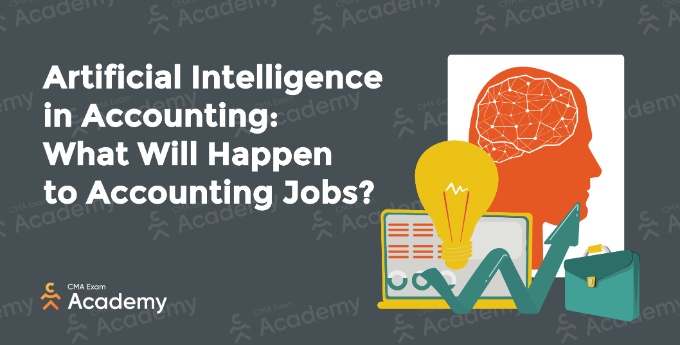
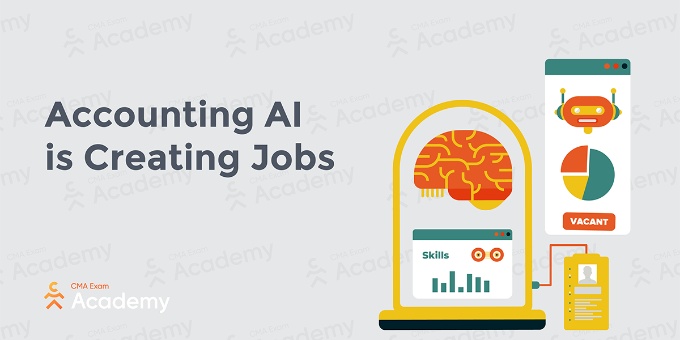
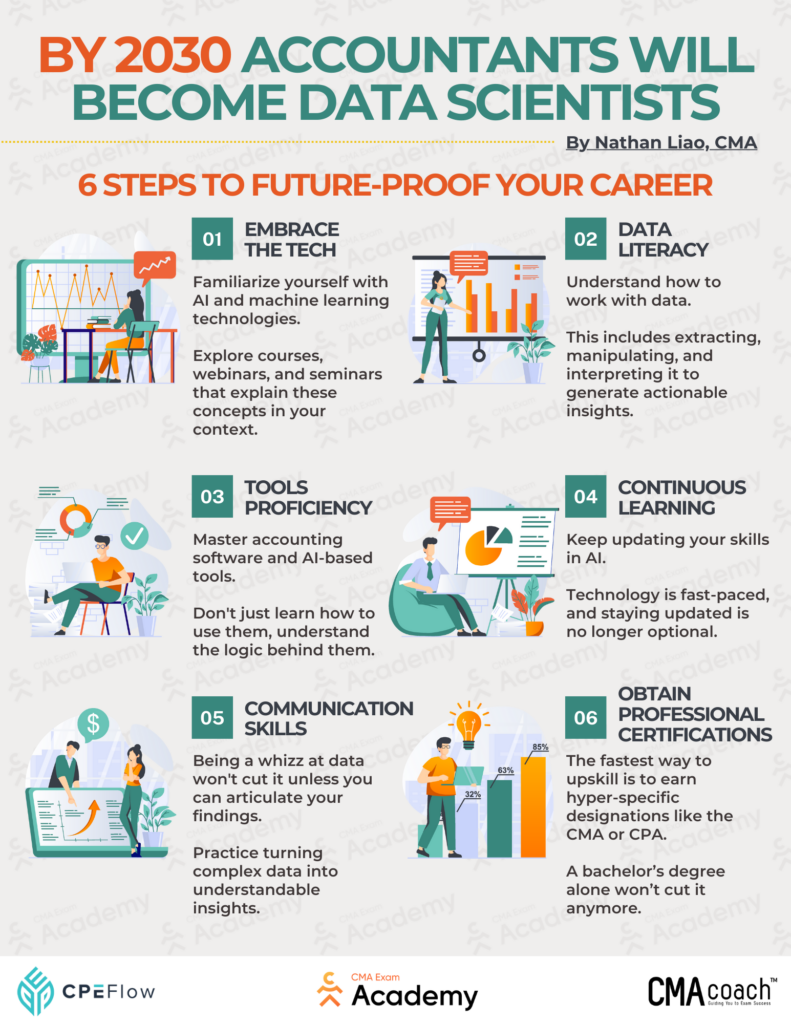
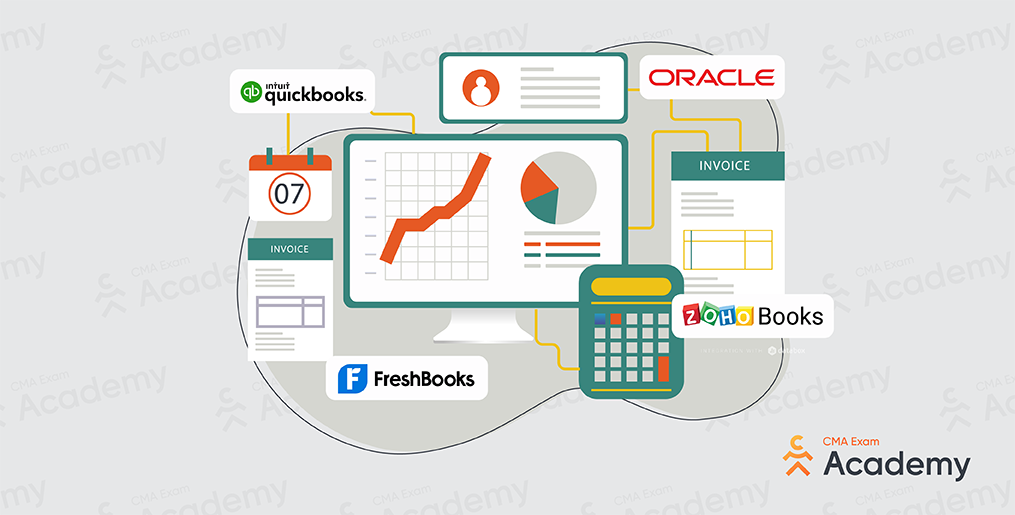
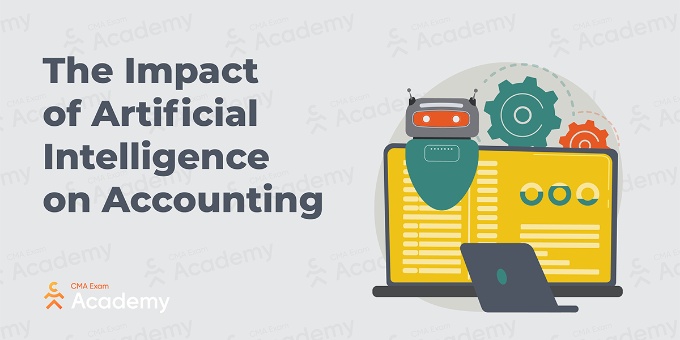
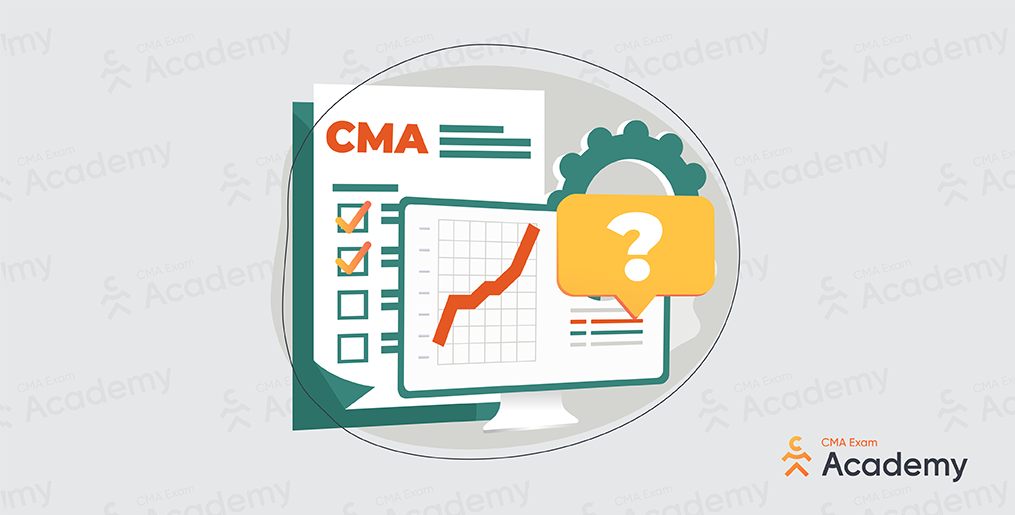
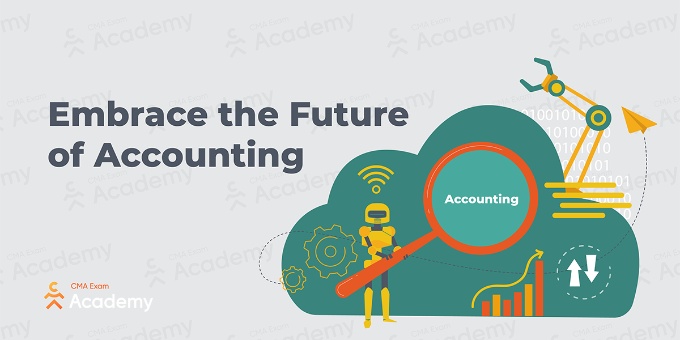

10 Comments on “Artificial Intelligence in Accounting: What Will Happen to Accounting Jobs?”
Helpful
I’m glad to hear that, Yusuf!
Sir, your articles are topnotch in the profession, my time was fully engaged with knowledge.
Best regards
Hi Uche,
Thank you for your kind words. I’m glad to hear that you find the articles valuable and informative. It’s always great to know they’re making a positive impact.
If you ever have any questions or need further information, don’t hesitate to reach out.
Wonderful Article
I’m glad you found it helpful, Fisayo!
Salut j’ai vraiment adoré votre article et ses arguments. En effet, cela m’aiderait et me motiverait également à poursuivre une carrière en comptabilité et en finance
Hi Boodia,
I’m glad you found this article helpful.
To learn more about the program, I invite you to visit https://cmaexamacademy.com/product/premium-cma-coaching-combo-part-1-part-2/
Thanks,
Nathan
Sir really it’s extraordinary knowledge and skills are globally accepted , implementation and formulation’s of accounting system, robotics and accounting emergening principal and accounting materialize norms and Prudencial norms
We are all appreciate course and we’ll advanced
Thank you for your lanunching us CMA course ????
Hi Mruthyunjaya,
I’m so glad you found this article helpful!
Thank you!